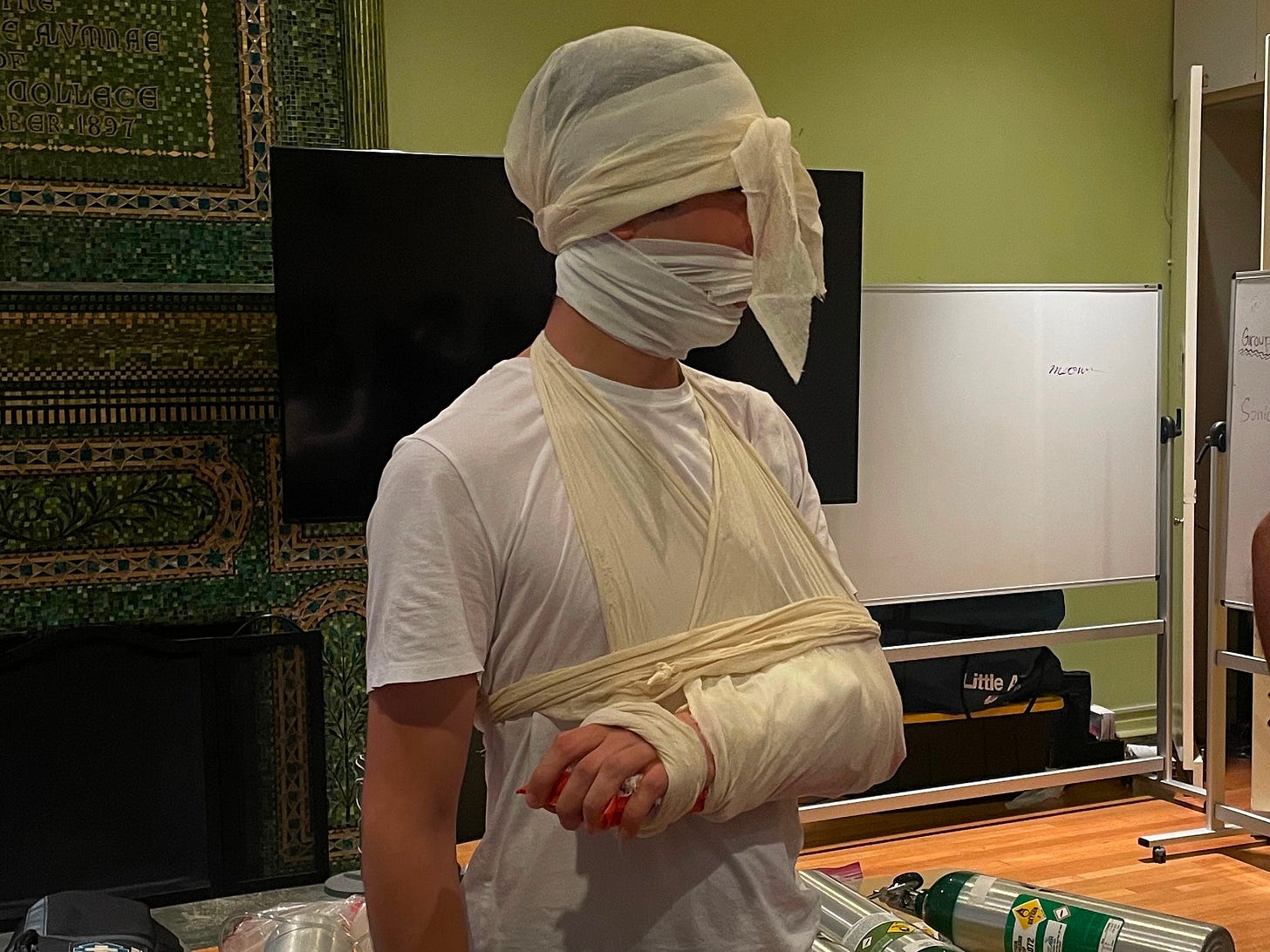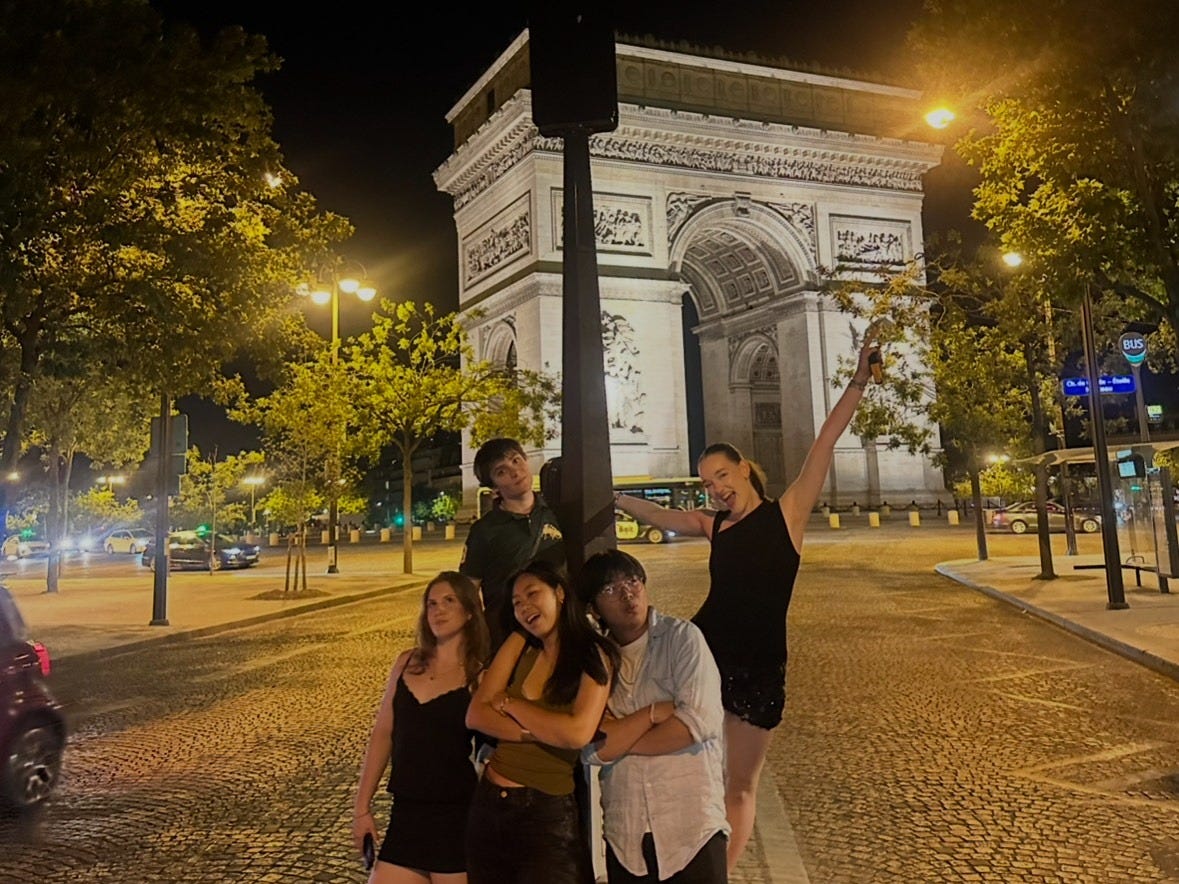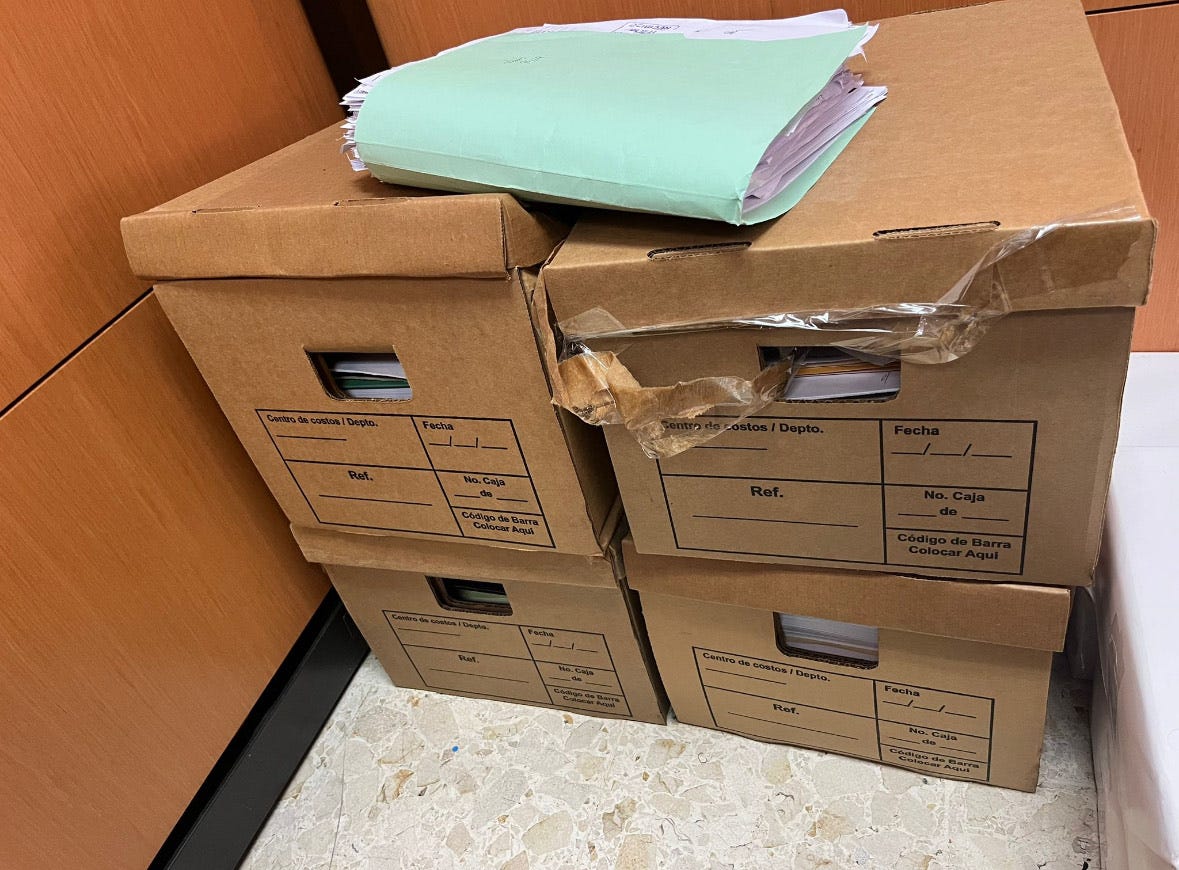How the Class of 2028 Spent Their Summers
Welcome to the Handshake Hunger Games.
Trigger warning: internships, employment, LinkedIn.
The I-word and E-word are without doubt the most coveted items of the summer. Many older Columbia students have been securing these since leaving the womb—if you don’t believe me, just check out the “I’m so excited to announce” or “I’m pleased to share” posts incessantly posted all over the L-word.
The Class of 2028 entered Columbia ready to dominate the Handshake Hunger Games. Surely, the Columbia name would have employers scrambling to hire these bright minds. Yet somehow, these young Kumon kids struggled to even land jobs at Ben & Jerry’s. To better understand this strange phenomenon, I spoke to five Columbia sophomores. Here’s how they spent their summers.
Dayson Gonzaga
For students who live in unexciting hometowns, the desire to be in the city during summer makes perfect sense. However, Dayson Gonzaga chose city life over the pristine beaches of his hometown in Hawaii. In fact, Dayson hasn’t been back to the Aloha State since last winter break, and doesn’t plan on returning until December. But Dayson had good reason to do so.
You guessed it—Dayson received a once-in-a-lifetime, only available in the city opportunity to work at a company inspiring positive change, community building, and product sustainability across New York. As their mission statement reads, this company is dedicated to “nurturing the human spirit”.
That’s right, Dayson was a barista at a downtown Starbucks.
Dayson worked at a Starbucks previously and “needed the money,” but also cited the phenomenal work benefits of “free drinks and food and bags of coffee” (virtually equivalent to healthcare with dental and vision covered) as key motivating factors. Despite having prior experience, on his first day Dayson forgot to put the cover over a blender and Melissa A.’s frappuccino exploded everywhere. It was “not a good ‘first day barista’ impression,” he told Sundial.
In addition to making multiple dollars in tips each day at Starbucks, Dayson also took classes to get an Emergency Medical Technician (EMT) certification at night. “I wanted to stay in NYC and I thought getting EMT certified would be fun,” he said. Spoken like a true pre-med, Columbia has clearly taught him well—when you can’t save a frappuccino, you may as well try your hand at saving actual human lives.

Shiven Jain
If you’ve ever stepped foot near the Columbia Center for Career Education, you’ve undoubtedly been introduced (indoctrinated) to the job platform Handshake. In an attempt to secure a coveted summer internship, Shiven Jain signed up for every possible Handshake networking event and submitted nearly 150 job applications. “I finally got an internship offer literally during move out so I had to throw stuff together to make this work.” After finding a room to sublet, Shiven came from his hometown of Johnson City, Tennessee back to Morningside Heights.
Only this “internship” wasn’t exactly what Shiven expected. The job listing was for a legal services internship. Upon arrival, Shiven was given a list of 1,400 lawyers to call to request survey responses. But there was a catch—“legal services” was a tidy synonym for “desperately begging disinterested and exhausted lawyers to stay on the phone.”
When all else failed during his routine calls, Shiven played the Columbia card: “I tell [told] these lawyers the survey is part of a research project I’m doing for my summer internship as a Columbia student.”
It’s actually quite a plausible scheme, given how many “on a scale from 1 to 5” surveys Columbia sends the student body in exchange for a 1 in 9,873 chance to earn 20 bucks in Flex dollars (you could buy a whole smoothie at Café East with that kind of cash!).
When asked what he’s getting out of this experience, Shiven told Sundial “I genuinely don’t think it’s worth anything. I keep trying to think of ways to make it sound interesting or like I’m learning something, but I can’t.” An L-word quality internship reflection post, no doubt.
It’s unclear who to feel worse for, the lawyers or Shiven. Actually, it’s most definitely Shiven, because once he finishes work and takes his 40-minute subway back to Morningside Heights, he braves the Dodge Gymnasium. This is already a horrible punishment, but it’s made even worse because Dodge isn’t overrun with the usual frat gym bros and badminton fanatics of the academic year—it’s a cesspool of pretentious pre-college kids. Minimal deodorant. Maximal volume. Frankly, that sounds like hell.
Leo De León
We now move out of the city to the Dominican Republic to meet Leo de León, who worked this past summer at the D.R.'s Central Bank as a business banking intern. This was especially confusing because Leo spent the entirety of second semester complaining about Principles of Economics and claimed he would never do “this” again.
However, Leo soon changed his mind once again: “After starting my internship, a week later I unenrolled from poli sci back to econ.” His four-year course plan spreadsheet was entirely rewritten twice. “I’m now embodying an econ bro.” Indeed, Leo understood that intellectual shapeshifting is a part of the economics major experience—from Patagonia vests in the fall to Grey Goose jackets in the winter, that is.
What was so transformative about this banking internship that made Leo rethink his entire major? The main thrust of this internship seemed fairly typical. Leo helps make business plans in Excel, create credit card applications for loans, and updates financial statements.
Actually, reading that over again it’s unclear what any of that means. And Leo resonated with that: “I have [had] to ask my boss every two seconds, hey is this correct? And it’s sad. If he isn’t there, then I’m just by myself.” That said, the constant questions worked for Leo, because he eventually became close with his boss. “We are like BFFs now,” he said. Budget Filing Friends, to clarify.
As it often goes with “Island Time”, clock-in and clock-out times were friendly suggestions at Leo’s job. “The internship was originally supposed to be 8:00 a.m. to 4:30 p.m., but my boss said to stop coming so early,” Leo said. In the D.R., it became apparent to Leo that always being on time to work doesn’t make you professional—it makes you high strung.
Another major perk Leo discovered was his lunch break. He often took it at the same time as his boss at 1 p.m., but wasn’t expected to return to the office until 2:30 p.m (3:45 p.m. Island Time).
However, before you start applying to internships in the D.R., there are some major items to consider.
“I am having matcha withdrawals because they don’t make good matcha in the DR,” Leo lamented. He also told Sundial “When I get back to the city, I’m also going to spend the money I’m making on sour patch kids because they don’t sell them in the DR either.”
This was perhaps the most valuable part of Leo’s internship. Finding yourself—your needs, your desires, the little things you need to live and thrive as an emerging intellectual, are what interning abroad can teach you. Indeed, when there is an absence of a grassy, milky tasting beverage in your workplace, you remember what’s important in life.
Fiona Poth
Whenever one travels to a completely new place, culture shocks are inevitable. For Fiona Poth, the biggest culture shock relocating from New York to Paris wasn’t the language, rudeness, or croissants—it was the subway, sorry, métro system.
“The subways are so clean, air conditioned, and not disgusting. You wouldn’t fear what you were sitting down on in the chairs,” Fiona said. Indeed, passengers of the Paris underground simply do not share the same worries as New Yorkers—is that stuff that looks like garbage feces? Is that feces garbage? For Fiona, it was clear that the only source of discontent Parisians have with their métro is that there’s no (limited) smoking allowed.
Fiona spent her month in Paris as part of the Columbia Art History and Architecture summer program. Summer study abroad allows Columbia students to get ahead on their course requirements and explore a new area while also not missing out on any semesters in New York. Fiona was able to experience the beauty of Paris (think Louvre, Eiffel Tower, or pickpocketing) while also exploring unique art and architecture for her class. This emphasis on experiential learning for Fiona “was new compared to class at Columbia because even though I’m an art history major and New York has so many museums, we never go to see pieces as part of the class[es].”
For some reason, the FroSci curriculum includes a trip to the Natural History Museum where students have to step on a space scale to see their weight on Saturn, but arts classes don’t take them to the Met. C’est la vie, je suppose.
However, in classic Columbia fashion, the academic component of “study abroad” is brutal. “I thought it was going to be easier because I was taking two classes instead of the typical five in a semester, but I’d argue it wasn’t,” she said. Somehow these two classes would span entire days, including a brutal 10 a.m. to 7 p.m. schedule on Thursdays and Fridays. For Fiona, her school days in Paris were so long that they were nearly equivalent to one of Leo’s lunch breaks in the D.R.—even in Paris, the rigor of Columbia remains no joke.
Uma Rajan
Well, what goes around comes around. After making fun of my peers’ plans, it’s only fair that as a member of the class of 2028, I critique myself too.
With the major help of a referral (because the 60 internship applications I submitted shockingly went nowhere), I received a position as a remote content intern for Underdog Fantasy Sports.
What exactly did I do during my internship? Well, as the only Gen Z “content intern”, I kept everyone up to date with the trends of those stinkin’ kids. So yes, a key component of my job was ensuring that I was chronically addicted to scrolling on TikTok and informing my boss about opportunities to capitalize on niche topics popularized by the app, such as how we can use Indonesian boat racing videos to promote Underdog’s social media (this was a real meeting). But don’t worry, on LinkedIn, this doomscrolling summary will read as sophisticated—officially, I “expertly presented reports on modern video creation to a team of 20+ employees.”
While technically I may not have “expertly presented” anything, I did get to pilot and suggest different features of the Underdog app. The catch is, Underdog is a sports betting app. So by testing and suggesting, I really mean losing 80 percent of my parlays—but hey, that’s not gambling, just company research!
All in all, if your summer doesn’t look “LinkedIn worthy,” don’t worry. Neither does anyone else’s (despite all of the “expertly presented reports” people’s L-word posts might claim). Instead, we can all pretend our internships taught us “how to thrive in a fast-paced, competitive environment” in Dodge when we fight each other for broken leg machines, tiptoe around frat bros posing in cult basement lighting, or hold our nose for dear life in the locker rooms. To the Class of 2028 and everyone else returning to Columbia this year, know whether it be on LinkedIn or in Dodge, we’re all pretty much in the same boat. An uncertain, peculiar, fun, bizarre, and smelly boat.
Ms. Rajan is a sophomore at Columbia College studying political science. She is a senior editor for Sundial.




